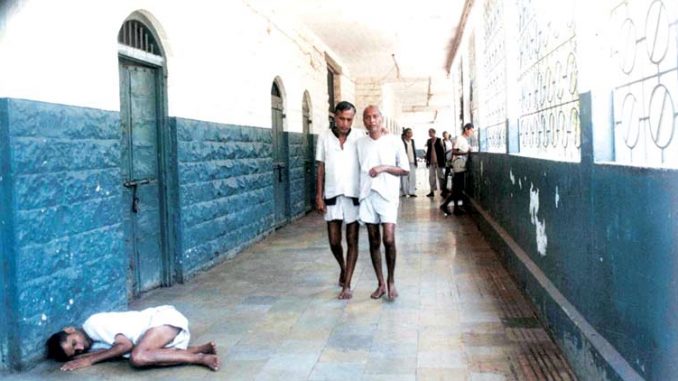
The most significant challenge in the years ahead is the need for a concerted drive to improve human resources in the field of mental health.
The Constitution of India guarantees a person’s right to life and personal liberty, including their right to move freely and their freedom of expression.
However, contrary to what is stated in the constitution, people with mental disorders (PMI) face many threats that violate their basic rights.

Source: Pixabay
This is not always because of abuse or wrongdoing. Many times the treatment of PMI involves a curtailment of their liberty and also the affixing of responsibility for their long-term care on to someone else, taking away their freedom of movement or expression.
Laws must also determine the competency or dangerousness of PMI, especially when it comes to determining personal responsibility for actions.
But PMI face many threats unconnected to their treatment. These threats arise from various quarters – including family members, caregivers, friends, institutions and other communities and people in society – who may abuse or take advantage of these individuals in some way.
Therefore, there is a need for protective mechanisms to ensure that affected individuals get proper attention and care and defined policies and provisions are implemented to protect the rights of this vulnerable group.
Like most of the countries in the world, India has laws that regulate the treatment of psychiatric patients, or the mentally unsound.
A few case-specific sub-sections of various Acts deal with mental illness, but like the matter of divorce in the Hindu Marriage Act, they are more for the benefit others than those with PMI.
But very few Acts are directly for the benefit or rights of those with PMI – and they have various deficiencies as well. Let’s have a look at them –
The Mental Healthcare Reforms in India:
Photo by rawpixel on Unsplash
The National Mental Health Programme, existing since 1982, has been more proactive than reactive, despite being re-strategised in 1996. The only significant drivers of change have been tragedies and a series of public litigations filed before the Supreme Court of India.
The better aspects of the mental health care reform in India are the series of reports from the National Human Rights Commission, 2008.
The reports highlight the gross deficiencies that existed in the institutional care of PMI and also demonstrates the positive changes in these individuals that can be brought about with persistent monitoring, effective intervention and collaboration.
This can lead to higher community participation, improvement in the budget and living conditions.

Source: Pixabay
Despite the many reforms and healthcare policies introduced in India, the reports emphasise the need for rehabilitation and human resources. Mental health care, unlike other kinds of health care, requires human resources, high budgeting and institutes/facilities.
To address such issues, the Mental Health Care Act was passed on April 7, 2017, and came into force from July 7, 2017. This act seeks to protect, promote and fulfil the rights of PMI. This Act superseded the previously existing Mental Health Act, 1987. It is yet to be seen if this new Act will ensure protection and equitable care to persons with mental illness.
The most significant challenge in the years ahead is the need for a concerted drive to improve human resources in the field of mental health. It must be emphasised that the ultimate aim of any act or law or other legal provision should be the welfare of the PMI and the society at large.
Written by Anoushka Thakkar, Research Associate, The MINDS Foundation. Edited by Vinayak Hegde.
Source: The Better India

Leave a Reply